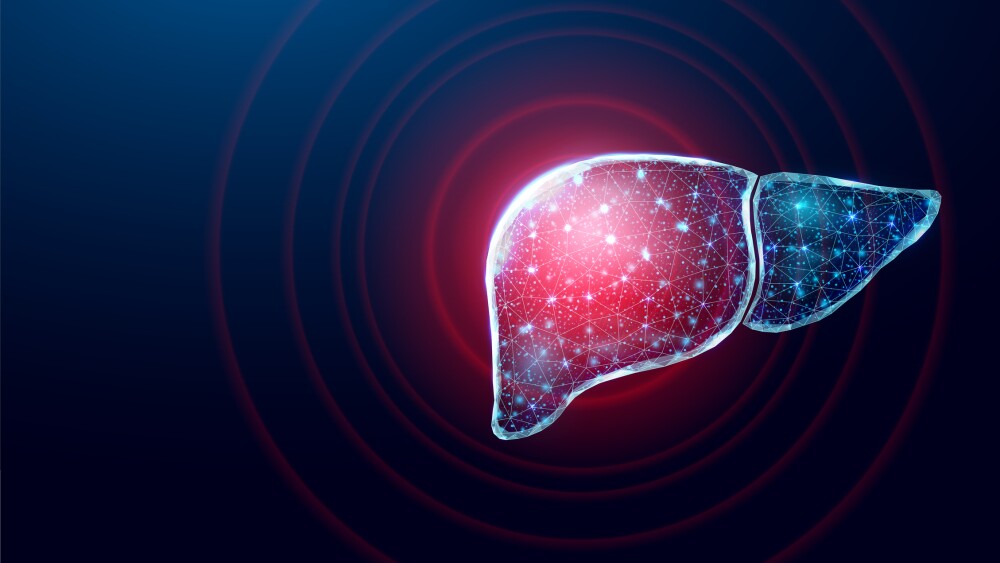CAMBRIDGE, Mass., Dec. 12, 2014 (GLOBE NEWSWIRE) -- Merrimack Pharmaceuticals, Inc. (Nasdaq:MACK) today announced data from multiple presentations at the 2014 San Antonio Breast Cancer Symposium in San Antonio, TX. Presentations include preclinical research and clinical data on MM-398, MM-302 and MM-121.
Presentations on Merrimack’s nanoliposomal platform include an abstract detailing clinical data from a cohort of ER/PR-positive metastatic breast patients treated with MM-398, a nanoliposomal encapsulation of irinotecan, in a cross-indication translational study investigating potential predictive response markers for MM-398 therapy. In addition, preclinical and clinical data were presented on the activity and deposition of MM-302, a HER2-targeted liposomal doxorubicin, after pretreatment of tumors with cyclophosphamide.
“Recent advances in targeted cancer therapies have significantly improved the treatment of breast cancer, but patients who have progressed on the current standard of care are still in need of innovative therapies,” said Thomas Wickham, Ph.D., Vice President of Development at Merrimack and MM-302 Project Team Leader. “We look forward to advancing our HERMIONE trial of MM-302 in anthracycline-naïve patients with HER2-positive metastatic breast cancer who have previously received pertuzumab and T-DM1. We are also pleased to present additional preclinical and clinical data evaluating imaging techniques to further understand the mechanism of MM-302 and enable us to better target development in patients most likely to respond to this treatment.”
Merrimack also presented novel biomarker results from a Phase 2 trial of MM-121 (seribantumab), a fully human monoclonal antibody that targets the ErbB3 receptor, in preoperative triple negative breast cancer and hormone receptor positive, HER2-negative breast cancer. These results included findings that paclitaxel, a chemotherapy drug that is administered in the first stage of the neoadjuvant regimen, activates the ErbB3 receptor and that MM-121, when co-administered with paclitaxel, has the ability to block this specific pathway of tumor cell resistance. MM-121 was also found to block a marker of tumor cell proliferation preferentially in triple negative breast cancer patients with high levels of heregulin, the ligand for ErbB3. Merrimack previously reported top line data from this study, which was designed to better understand the mechanism of MM-121, as well as the role of biomarkers in identifying patients that could potentially benefit from the addition of MM-121 to standard neoadjuvant therapy.
“We are excited to report biomarker findings from this extensive translational study. With these data, we further strengthen our hypothesis that heregulin is the primary patient response biomarker for MM-121 when combined with standard-of-care therapies across multiple cancer indications.” said Gavin MacBeath, Ph.D., Co-Founder and Senior Vice President at Merrimack. “These findings also support our pursuit of additional clinical research on the role of MM-121 in re-sensitizing heregulin-positive patients to cancer treatments.”
METHODOLOGY AND RESULTS
Characterization of metastatic breast cancer with ferumoxytol MRI and treatment response to MM-398, nanoliposomal irinotecan (nal-IRI) (Abstract #P5-01-06)
MM-398 is a nanoliposomal encapsulation of irinotecan that has demonstrated extended circulation in comparison to free irinotecan in the clinical setting. The activated form of irinotecan is SN-38, which functions by inhibiting topoisomerase I (an essential enzyme involved in DNA transcription and replication) and promoting cell death.
- Three of 13 patients receiving MM-398 had ER/PR-positive metastatic breast cancer. 13 liver lesions were evaluated by ferumoxytol-MRI and CT for these three patients. The best overall response was one partial response and one stable disease in these three patients.
- Lesions that shrank after MM-398 treatment showed higher early levels of ferumoxytol compared to the study median. This was consistent with the lesion behavior in the full data set of the study.
- Ferumoxytol was well tolerated and adverse events to MM-398 were consistent with previous studies.
HERMIONE: A Phase 2, randomized, open label trial comparing MM-302 plus trastuzumab with physician’s choice of chemotherapy plus trastuzumab, in anthracycline naïve HER2-positive, locally advanced/metastatic breast cancer, previously treated with pertuzumab and trastuzumab emtansine (T-DM1) (Abstract #OT3-1-10)
MM-302 is a novel antibody-drug conjugated liposomal doxorubicin that specifically targets cancer cells overexpressing the HER2 receptor. As a liposomal encapsulation of doxorubicin, MM-302 is designed to allow for the selective uptake of drug into tumor cells while limiting exposure to healthy tissues, such as those of the heart.
- HERMIONE is a randomized, Phase 2 open-label trial designed to evaluate MM-302 in anthracycline naïve patients with HER2-positive metastatic breast cancer who have previously received pertuzumab and T-DM1 in the locally advanced or metastatic setting.
- The primary efficacy endpoint is progression free survival (PFS). A total of 250 patients will be enrolled at approximately 60 sites in the United States and Western Europe. This trial was designed with input from the U.S. Food and Drug Administration (FDA) to support a potential accelerated approval application.
Effect of pre-treatment with cyclophosphamide on MM-302 (HER2-targeted liposomal doxorubicin) deposition in HER2-positive metastatic breast cancer patients assessed by 64Cu-MM-302 PET/CT (Abstract #P4-15-04)
- MM-302 was radiolabeled for imaging by PET/CT. A Phase 1 study is evaluating the delivery of radiolabeled MM-302 to solid tumors and the effect of cyclophosphamide pre-treatment on delivery to tumors.
- Radiolabeled MM-302 PET/CT was able to visualize diverse tumor lesions and demonstrated variability in uptake of MM-302.
- Patients treated with cyclophosphamide, MM-302 and trastuzumab appear to have higher mean tumor lesion deposition of 64Cu-MM-302, higher response rates and longer PFS than those who received MM-302 and trastuzumab alone. However, the differences were not statistically significant.
- The combination of MM-302 with cyclophosphamide was well tolerated and no issues were reported related to radiolabeled MM-302 administration or imaging.
Tumor priming with cyclophosphamide for enhanced tumor delivery, penetration and anti-tumor activity of MM-302, HER2-targeted liposomal doxorubicin (Abstract #P6-11-05)
- Biodistribution studies were carried out in multiple tumor xenograft models to assess the delivery of MM-302 and free doxorubicin, either as single agents or in combination with cyclophosphamide at different dosing schedules.
- Treatment of tumor xenografts with cyclophosphamide followed by MM-302 resulted in a significantly greater tumor growth inhibition compared to either single agent alone.
A randomized, Phase 2 Trial of Preoperative MM-121 with Paclitaxel in triple negative (TN) and hormone receptor (HR) positive, HER2-negative Breast Cancer (Abstract #P3-11-03)
MM-121 is a fully human monoclonal antibody that targets ErbB3, a cell surface receptor that is activated by the ligand heregulin.
- 101 patients with locally advanced HR-positive, HER2-negative breast cancer (Group 1) and 99 patients with TN breast cancer (Group 2) enrolled in the study. The primary endpoint of this study was to describe pCR rates, defined as the absence of invasive cancer in the breast and lymph nodes. The following pCR rates were previously reported and are as follows: For Group 1, 96 of the patients were efficacy evaluable and the pCR rate in the MM-121 treatment arm was 7/66 (10.6%, 95% CI [5.2%, 20.3%]) compared to 1/30 (3.3%, 95% CI [0.6%, 16.7%]) on the control arm. For Group 2, 85 of the 99 patients were efficacy evaluable and the pCR rate in the MM-121 treatment arm was 24/56 (42.9%, 95% CI [30.7%, 55.9%]) compared to 15/29 (51.7%, 95% CI [34.4%, 68.6%]) on the control arm.
- Paclitaxel treatment appears to increase phosphorylation of ErbB3 and MM-121 appears to reduce it, most notably in HR-positive/HER2-negative breast cancer patients.
- In TN breast cancer patients, heregulin mRNA appears to be a biomarker for effect of MM-121 on tumor cell proliferation as measured by Ki-67 levels, a cancer antigen found in actively dividing tumor cells.
- The combination of MM-121 with standard-of-care regimens was well tolerated with a modest increase in adverse events reported.
About Merrimack
Merrimack is a biopharmaceutical company discovering, developing and preparing to commercialize innovative medicines paired with companion diagnostics for the treatment of cancer. Merrimack seeks to gain a deeper understanding of underlying cancer biology through its systems biology-based approach and develop new insights, therapeutics and diagnostics to improve outcomes for cancer patients. Merrimack currently has six oncology therapeutics in clinical development and three additional candidates in late stage preclinical development. For more information, please visit Merrimack’s website at www.merrimackpharma.com or connect on Twitter at @MerrimackPharma.
Forward-Looking Statement
To the extent that statements contained in this press release are not descriptions of historical facts, they are forward-looking statements reflecting the current beliefs and expectations of management made pursuant to the safe harbor provisions of the Private Securities Litigation Reform Act of 1995, as amended. Forward-looking statements include any statements about Merrimack’s strategy, future operations, future financial position and future expectations and plans and prospects for Merrimack, and any other statements containing the words “anticipate,” “believe,” “estimate,” “expect,” “intend,” “may,” “plan,” “predict,” “project,” “target,” “potential,” “will,” “would,” “could,” “should,” “continue,” and similar expressions. In this press release, Merrimack’s forward-looking statements include, among others, statements about the potential effectiveness and tolerability of its investigational therapeutics in certain patient populations or subpopulations and its ability to develop a predictive diagnostic. Such forward-looking statements involve substantial risks and uncertainties that could cause Merrimack’s clinical development programs, future results, performance or achievements to differ significantly from those expressed or implied by the forward-looking statements. Such risks and uncertainties include, among others, the uncertainties inherent in the initiation of future clinical trials, availability of data from ongoing clinical trials, expectations for regulatory approvals and other matters that could affect the availability or commercial potential of Merrimack’s drug candidates or companion diagnostics. Merrimack undertakes no obligation to update or revise any forward-looking statements. Forward-looking statements should not be relied upon as representing Merrimack’s views as of any date subsequent to the date hereof. For a further description of the risks and uncertainties that could cause actual results to differ from those expressed in these forward-looking statements, as well as risks relating to Merrimack’s business in general, see the “Risk Factors” section of Merrimack’s Quarterly Report on Form 10-Q filed with the Securities and Exchange Commission (SEC) on November 10, 2014 and other reports Merrimack files with the SEC.
CONTACT: Investor Contact: Geoffrey Grande, CFA Merrimack 617-441-7602 ggrande@merrimackpharma.com Media Contacts: Debbie Tseng Merrimack 617-441-7659 dtseng@merrimackpharma.com Liz Bryan Spectrum 202-955-6222 lbryan@spectrumscience.com
![]()
Help employers find you! Check out all the jobs and post your resume.



